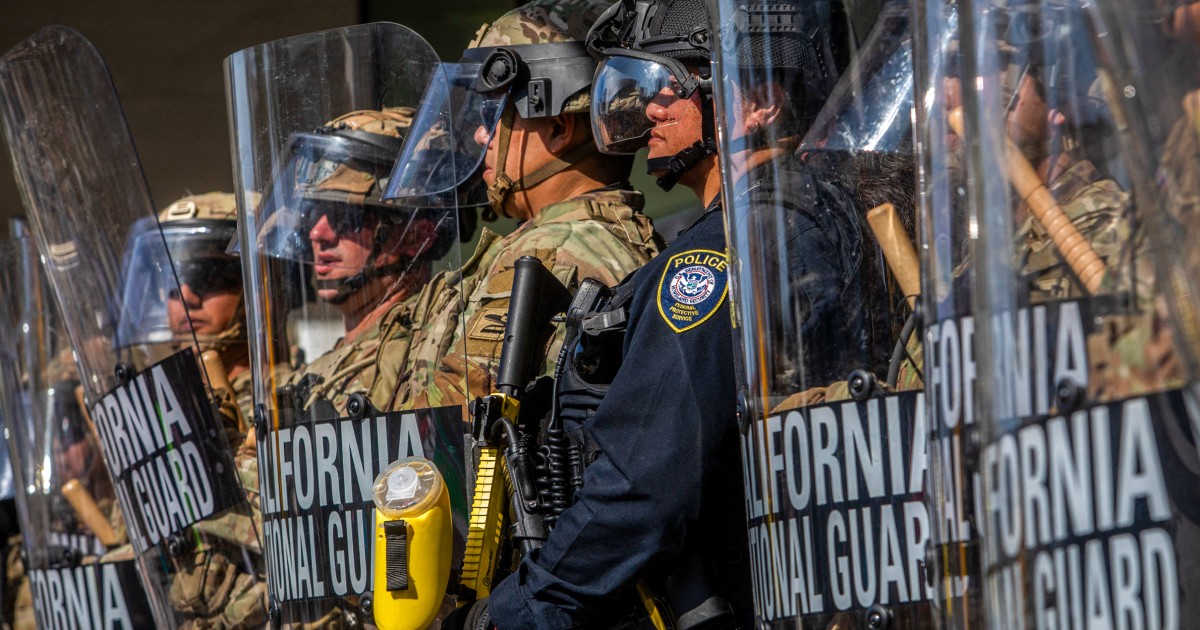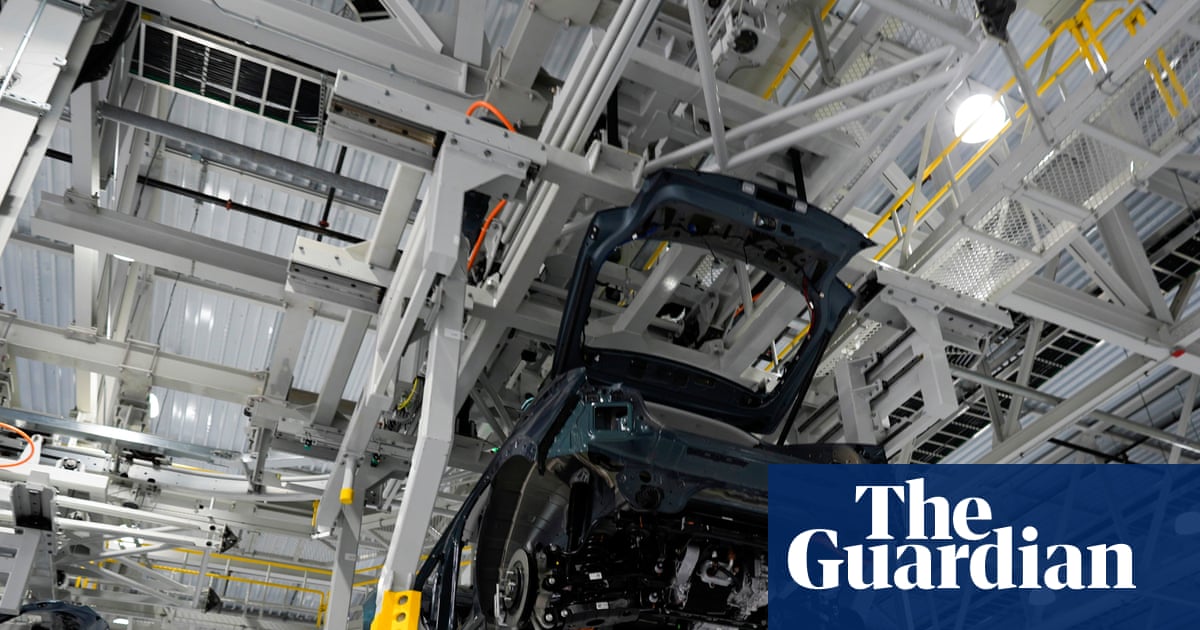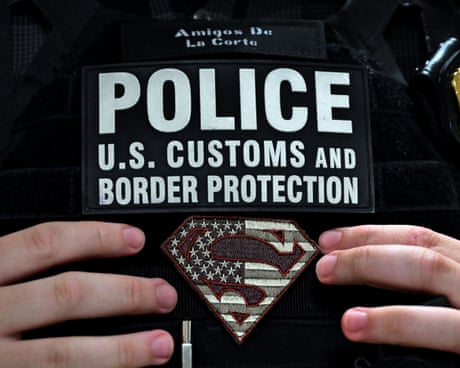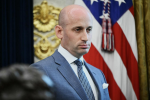You are using an out of date browser. It may not display this or other websites correctly.
You should upgrade or use an alternative browser.
You should upgrade or use an alternative browser.
Trump Dictatorship and All Things Politics
- Thread starter LogGrad98
- Start date
Red
Well-Known Member

Judge rules Trump illegally deployed National Guard and Marines to Los Angeles
U.S. District Judge Charles Breyer said using the California National Guard and the Marines to conduct law enforcement in the city violated a 19th century law.
A federal judge in California on Tuesday ruled that the Trump administration violated a 19th-century law when it mobilized 4,000 National Guard troops and 700 Marines to Los Angeles in June.
"The evidence at trial established that Defendants systematically used armed soldiers (whose identity was often obscured by protective armor) and military vehicles to set up protective perimeters and traffic blockades, engage in crowd control, and otherwise demonstrate a military presence in and around Los Angeles," U.S. District Judge Charles Breyer in San Francisco said in a 52-page filing.
"In short, Defendants violated the Posse Comitatus Act," he said.
The judge's ruling strikes a blow to President Donald Trump's push to deploy troops to city streets as part of an effort to fight crime, though critics have branded it the deployments as an overreach. Trump first deployed National Guard troops to Los Angeles before sending soldiers into Washington, D.C., enraging many opponents and residents. The president has indicated his interest in deploying troops to other cities as well.
Lawyers representing California argued during a three-day trial last month that the president had exceeded his authority by deploying federal troops after thousands of protesters took to the streets of downtown L.A. to protest his immigration policies.
California had asked Breyer to order the Trump administration to return control of the remaining troops to Gov. Gavin Newsom and to stop using the military “to execute or assist in the execution of federal law.”
The Department of Justice countered that the deployment was necessary to protect federal property and personnel, and that the troops acted within the confines of an obscure law called the Posse Comitatus Act.
The 1878 statute prohibits the president from using the military as a domestic police force without approval from Congress.
The Trump administration “deployed the National Guard and Marines to Los Angeles, ostensibly to quell a rebellion and ensure that federal immigration law was enforced,” the judge wrote in Tuesday’s ruling.
“There were indeed protests in Los Angeles, and some individuals engaged in violence,” he wrote. “Yet there was no rebellion, nor was civilian law enforcement unable to respond to the protests and enforce the law.”
Breyer ordered the Trump administration to stop using military troops in California “to execute the laws, including but not limited to engaging in arrests, apprehensions, searches, seizures, security patrols, traffic control, crowd control, riot control, evidence collection, interrogation, or acting as informants” unless the situation meets the bar for invoking the Posse Comitatus Act.
The judge wrote that Trump’s intention to call National Guard troops into federal service in other cities would be “creating a national police force with the President as its chief.”
NBC news has reached out to the White House and Newsom's office for comment.
Sardines
Well-Known Member
No. No there is not.
"Donald Trump and Vladimir Putin are on the same page again.
The US and Russian presidents are now both singling out Europe as stasis envelops efforts to end the Ukraine war three weeks after their high-profile but low-impact summit in Alaska.
Trump called on Europe to do more in a call with European leaders on Thursday — even though the only incremental diplomatic activity to do with the war is coming from US transatlantic allies as they try to work out security guarantees to protect Ukraine after any peace deal.
The latest twist in the president’s erratic Ukraine diplomacy came a day after he told reporters he planned to speak with Putin again soon so he could work out “what we’re going to be doing.” He refused to say whether he’d sign off on severe direct sanctions on Russia if Putin continued to slow his peace initiative after the Russian president ignored repeated two-week deadlines, the latest of which expires on Friday. “Whatever his decision is, we’ll either be happy about it, or unhappy. And if we’re unhappy about it, you’ll see things happen,” Trump said in the Oval Office on Wednesday.
Trump did speak to Volodymyr Zelensky on Thursday, along with the other European leaders. The Ukrainian president said afterward that the conversation covered economic pressure on Russia and “depriving Russia’s war machine of money.”
But the message from the US side after the conversation faulted the Europeans more than Russia.
Trump “emphasized that Europe must stop purchasing Russian oil that is funding the war — as Russia received €1.1 billion in fuel sales from the EU in one year,” a White House official said after the call. “The president also emphasized that European leaders must place economic pressure on China for funding Russia’s war efforts,” the official said.
On one hand, Trump has a point. Given the grave security threat that European nations perceive from Russia, it’s odd that there would be any European Union countries still buying Russian energy at a time when the West has imposed sanctions to try to debilitate Moscow’s economy over its illegal 2022 invasion of Ukraine.
Still, like many of Trump’s positions on the war, his pressure on Europe contains illogical and even hypocritical elements. After all, he’s demanding that Europe take on China over its Russian oil purchases when he’s not prepared to sanction Beijing himself. The United States is locked in trade talks with the Chinese after the president unleashed a trade war with high tariffs despite rather unfavorable US cards. Trump seems loath to do anything that will harm his chances of a deal.
But his stance on Europe mirrors his treatment of another erstwhile friend, India, which is struggling under a 50% tariff on its exports to the United States that Trump justified by its continuing purchases of Russian oil. His move shattered a three-decade-long bid by successive Democratic and Republican presidents to keep India out of the orbit of fellow rising Asian superpower China.

People work at a garment factory in Tiruppur in the southern state of Tamil Nadu, India, on April 23, 2025.
Francis Mascarenhas/Reuters
The cost of his strategy was underscored this week when Chinese President Xi Jinping offered Indian Prime Minister Narendra Modi a jovial welcome at a summit of strongman leaders. Modi, meanwhile, spent an hour in Putin’s limousine, in an echo of the Russian leader’s ride in Trump’s Beast armored car during their summit in Alaska three weeks ago.
In any case, hiking pressure on Europe to ease off its purchases of Putin’s oil is unlikely to be decisive. The continent has been taking steps to decrease its dependence on Russian energy as war has raged in Ukraine. Russia was once the largest supplier of petroleum to the EU. But member states have since imposed a ban on maritime oil exports and refined oil products. CNN’s Lauren Kent reported last month that oil imports to Europe fell to $1.72 billion in the first quarter of 2025, down from $16.4 billion in the equivalent period in 2021.
Russia seeks to split the US and Europe
Russia, meanwhile, is intensifying its classic strategy of trying to drive wedges between NATO allies as it seeks to create room for its forces to press for more gains on the frontlines in eastern Ukraine.During his visit to China, Putin met Slovak Prime Minister Robert Fico and accused Europeans of whipping up “hysteria” over Moscow allegedly planning to attack Europe. “Any sane person is perfectly aware that Russia has never had, does not have, and will never have any desire to attack anyone,” said a Russian president whose forces entered Ukraine in 2014 and 2022.

Russian President Vladimir Putin meets with Slovakian Prime Minister Robert Fico at Diaoyutai State Guesthouse in Beijing, China, on September 2.
Maxim Shemetov/Pool/Reuters
In Alaska, Putin warned — as he stood side-by-side with a US president who has frequently criticized America’s allies — that Europe should not “throw a wrench in the works” of his diplomacy with Trump.
And earlier this week, the European Commission said a plane carrying its top leader Ursula Von der Leyen was targeted with GPS navigation jamming while landing in Bulgaria on Sunday and that Russia was suspected. Moscow blasted the claim as “fake” and a symptom of European “paranoia.”
In another swipe at Europe this week, Russian Foreign Ministry spokeswoman Maria Zakharova told reporters that Russia found the idea of any deployment of foreign troops to Ukraine in the event of a peace deal “unacceptable.” It was Moscow’s latest effort to scupper a European push for a reassurance force for Ukraine after the war.
There is also no sign of the meeting between Putin and Zelensky that White House officials confidently predicted would take place as soon as two weeks ago. Putin did offer to hold talks in Moscow. But since it would be impossible for Zelensky to feel secure in such a venue, this came across as yet another example of obstruction.
Trump had once suggested he’d be involved as a third party in such talks, but he’s reverted to the Russian position that a one-on-one should happen first. Ukraine’s allies worry that Putin would orchestrate a confrontation in a bilateral meeting that he could then use to argue to Trump that Zelensky had sabotaged the process.

Ukraine's President Volodymyr Zelenskyy, left, and French President Emmanuel Macron, arrive to attend a summit on Ukraine at the Elysee Palace, in Paris, France, on Thursday, September 4.
Ludovic Marin/Pool/AP
Some movement on security guarantees — but Russia would be a roadblock
There was one glimmer of progress on Thursday — even if it is conditional on the long-shot success of a Trump peace initiative that stalled before it really got going.Following the call between Trump, Zelensky and members of the “Coalition of the Willing” Ukrainian allies, French President Emmanuel Macron said that 26 countries had pledged contributions to a potential peacekeeping force if a ceasefire deal is finalized.
Macron said that, alongside strengthening Ukraine’s armed forces and deploying European troops to Ukraine, the third component of Ukraine’s security guarantees ought to be an “American safety net.” The US has told allies it is open to a limited role in providing security guarantees to Ukraine if a peace deal is reached with Russia.
At the end of another week of very little movement toward peace in Ukraine, it’s no wonder, as CNN’s Alayna Treene reported, that Trump is getting frustrated.
But there are few signs that he’s got a big idea to break the logjam.

Hundreds of workers detained in major Ice raid at US Hyundai factory
South Korea concerned after at least 450 were arrested at Georgia work site making batteries for Hyundai and Kia cars
Hundreds of workers detained in major Ice raid at US Hyundai factory
South Korea concerned after at least 450 were arrested at Georgia work site making batteries for Hyundai and Kia carsGuardian staff and agency
Fri 5 Sep 2025 09.22 EDT
Share
Hundreds of workers at a factory being built in Georgia to make car batteries for Hyundai and Kia electric vehicles were detained in a massive raid by Immigration and Customs Enforcement (Ice) on Thursday that stopped construction.
The facility is part of what would be the biggest industrial investment in the state’s history and had been hailed as a huge boost for the economy by Georgia’s Republican governor, Brian Kemp.
At least 450 people were arrested, according to the Atlanta office of the US justice department agency, the Bureau of Alcohol, Tobacco, Firearms and Explosives.
However the Korea Economic Daily later reported around 560 workers at the Hyundai facility and LG Energy Solution (LGES), had been detained, citing unidentified industry sources. Some 300 are South Korean nationals, according to local media reports. Hyundai Motor is a South Korean automotive company but has many international plants.
The raid on Thursday has dealt a setback to the company’s substantial project in Georgia and was a dramatic iteration of the Trump administration’s harsh crackdown on immigrants in the US.

From Uncle Sam to social media memes: inside homeland security’s push to swell Ice ranks
Read more
It also showed the disruptive impact that Donald Trump’s mass deportation agenda is having on businesses, even as the White House tries to spur more inflows from foreign investors.
An agent at the Department of Homeland Security (DHS) said multiple federal agencies, including Ice, the FBI and the DEA “conducted a judicially authorized enforcement operation, as we are actively conducting an investigation into unlawful employment practices”.
“Arrests are being made,” Steven Schrank, the special agent in charge of homeland security investigations for Georgia, said in a news briefing.
A government official representing South Korea, the home of Hyundai Motor, said those arrested were being held at an Ice detention facility.
South Korea’s foreign ministry said that “many of our nationals” have been detained and expressed concern about the impact of the raid.
“The economic activities of our companies investing in the United States and the interests of our citizens must not be unduly violated during the course of US law enforcement,” ministry spokesperson Lee Jae-woong said in a statement on Friday.
The battery production facility, a joint venture between South Korean battery maker LGES and Hyundai Motor, was due to start operations at the end of this year, according to LGES, to power electric vehicles.
A spokesperson at the Hyundai-GA battery company in Georgia said in a statement that it was cooperating fully and that it had paused construction work.
Hyundai Motor said its production of electric vehicles at the sprawling site was not affected.
In 2023, Hyundai Motor Group and LG Energy Solution (LGES) announced the $4.3bn venture to produce EV battery cells, with each company holding a 50% stake. The plant will supply batteries for Hyundai, Kia and Genesis EV models.
The battery factory is part of Hyundai’s $12.6bn investments in Georgia, including the automaker’s just-opened car factory, in what would be “the largest economic development project in the state’s history” and is part of a bigger investment in US industry by the South Korean company, announced in March as Trump was ramping up on tariffs.
A social media video footage showed a man wearing a vest with the letters HIS, an acronym for Homeland Security Investigations (HSI), telling workers in yellow safety vests: “We have a search warrant for the whole site. We need construction to cease immediately. We need all work to end on the site right now.”
Trump has said he wants to deport “the worst of the worst” criminals, but Ice figures have shown a rise in non-criminals being picked up. Rights advocates have denounced such raids.
While homeland security investigations led the raid, federal officers were assisted by the Georgia department of public safety and state troopers, according to local media.

Dozens of warehouse workers detained in New Jersey immigration raid
Read more
Meanwhile in upstate New York, another significant Ice raid took place at the Nutrition Bar Confectioners facilities near Syracuse, where snack bars are made at a family-owned concern, drawing anger from the state governor.
Officers forced entry to the industrial facility and detained dozens of workers.
“I am outraged by this morning’s Ice raids in Cato and Fulton, where more than 40 adults were seized, including parents of at least a dozen children at risk of returning from school to an empty house,” Kathy Hochul, New York’s Democratic governor, said in a statement released by her office.
“I’ve made it clear, New York will work with the federal government to secure our borders and deport violent criminals, but we will never stand for masked Ice agents separating families and abandoning children,” Hochul added.
Migrant advocacy group Rural & Migrant Ministry said on Facebook that it estimated that more than 70 workers had been arrested.
Reuters contributed reporting
Please help us hit our fundraising appeal target
22,049 of 40,000 readers
At this dangerous moment for dissent
I hope you appreciated this article. Before you close this tab, I wanted to ask if you could support the Guardian at this crucial time for journalism in the US.When the military is deployed to quell overwhelmingly peaceful protest, when elected officials of the opposing party are arrested or handcuffed, when student activists are jailed and deported, and when a wide range of civic institutions – non-profits, law firms, universities, news outlets, the arts, the civil service, scientists – are targeted and penalized by the federal government, it’s hard to avoid the conclusion that our core freedoms are disappearing before our eyes – and democracy itself is slipping away.
In any country on the cusp of authoritarianism, the role of the press as an engine of scrutiny, truth and accountability becomes increasingly critical. At the Guardian, we see it as our job not only to report on the suppression of dissenting voices, but to make sure those voices are heard.
Not every news organization sees its mission this way – indeed, some have been pressured by their corporate and billionaire owners to avoid antagonizing this government. I am thankful the Guardian is different.
Our only financial obligation is to fund independent journalism in perpetuity: we have no ultrarich owner, no shareholders, no corporate bosses with the power to overrule or influence our editorial decisions. Reader support is what guarantees our survival and safeguards our independence – and every cent we receive is reinvested in our work.
The Guardian’s global perspective helps contextualize and illuminate what we are experiencing in this country. That doesn’t mean we have a single viewpoint, but we do have a shared set of values. Humanity, curiosity and honesty guide us, and our work is rooted in solidarity with ordinary people and hope for our shared future.
It has never been more urgent, or more perilous, to pursue reporting in the US that holds power to account and counters the spread of misinformation – and at the Guardian we make our journalism free and accessible to all. Can you spare just 37 seconds now to support our work and protect the free press?
We value whatever you can spare, but a recurring contribution makes the most impact, enabling greater investment in our most crucial, fearless journalism. As our thanks to you, we can offer you some great benefits – including seeing far fewer fundraising messages like this. We’ve made it very quick to set up, so we hope you’ll consider it. Thank you.
Mongoose
Well-Known Member
Which of you is this old fart

 www.facebook.com
www.facebook.com

260K views · 17K reactions | Follow me! #funny #comedy | Ryan Long
Follow me! #funny #comedy.
 www.facebook.com
www.facebook.com
Red
Well-Known Member
This is one sick president we got….declaring war on Chicago….
View: https://x.com/MoloWarMonitor/status/1964356586622624147

View: https://x.com/MoloWarMonitor/status/1964356586622624147

Last edited:
Sardines
Well-Known Member
WTF?


